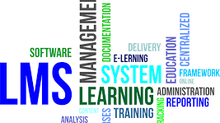Pathways Communications Training Part II
- Dylan Hedges
- May 9, 2018
- 3 min read

I mentioned last week that due to the continued growth at Pathways Training & eLearning, we have posted for multiple positions, including a posting for a programmer. Well you can now add instructional designers to that list, which means shortly we will be interviewing potential candidates to fill these exciting roles. As I also mentioned last week, while “excellence in communication” is usually a hi-lite of more resumes we see, we do not always share the same understanding as to what this really means. As such I thought I would continue the interpersonal communication skills topic, by discussing the filters we use to interpret a message.
The first thing to recognize is that messages are not sent directly from your brain to the receiver’s brain. As you deliver your message, it goes through a set of filters that can impact its meaning. These filters are Words, Tone and Body Language. This week, we will focus on Words.
Our choice of words can obviously either help or hurt our ability to communicate our ideas clearly and accurately. Using ineffective words can create resistance in your listener so good word choice is critical. It may seem obvious that we should only use words that we are sure our listener will understand in the way we meant them, but think about how often we hear people using:
Jargon – Words unique to a business or industry that are not well understood outside that industry. Industries such as IT, medical and business tend to be very prone to the use of jargon which confuses and alienates listeners not from that industry. For example, you call your cell phone provider for assistance with setting up Email on your phone, and they tell you that you need to “call your ISP first”. To the person working for the cell phone provider, ISP or “Internet Service Provider” is a common term, but to many of us this is just another acronym with no meaning, so now we are confused, angry and not sure what to do.
Pretentious words – Words that are chosen to ‘sound smart’ – using a more complex word when a simpler word will do. For example, consider: why would we use “utilize” rather than “use”, “transpire” versus “happen,” “facilitate” versus “help”, “expedite” versus “quicken” “comprehend” versus “understand”? Whether or not we are aware of it, when we do this, we subtly suggest to the listener that we believe we are more intelligent, while simultaneously confusing them – this alienates our listener and is the opposite of clear communication!
Confusing words – Words that may have several meanings unrelated to one another may cause confusion. Consider this sentence and how multiple meanings can confuse the message: “Safety experts suggest that school bus passengers should be belted.”
Extreme, overly-emotional or overly-negative words – When you are trying to convey emotion, emotional words are useful; however, if you are trying to pass a factual message, using emotional words may impact your listener more than your message, making them feel resistant or criticized rather than informed. For example, “This overworked operator is completely exhausted and needs a break” sounds critical versus “This operator is very tired and needs a break.” which merely conveys the necessary information.
Complex idiomatic expressions or phrasing – Particularly in environments where we may have listeners with different first languages than ours, it is very important to choose our words carefully. Consider how an expression such as “Get the most bang for your buck” may confuse a listener whereas “Get the most value for your money” provides clarity.
Remember: we choose words to communicate. Any time we choose to use a word, a phrase or an expression that may confuse, alienate or mislead our listener, we are not accomplishing our goal and may even be creating resistance to our message for the listener.
Next week we will continue this discussion, looking at the second filter, Tone.
If you’re interested in learning more about communication training for your organisational needs, or would like to learn more about the open positions we have, please contact us at info@pathwaysinc.ca or at 1-888-961-6011.


































Kommentare